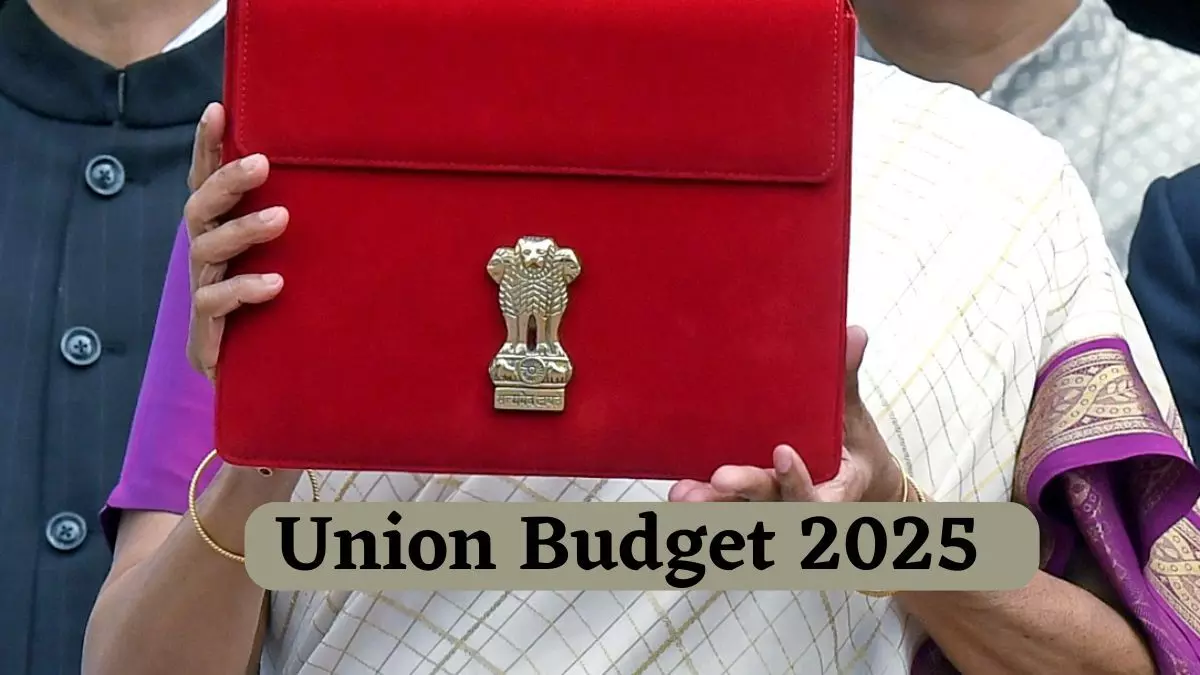Leading the Charge: Industry Perspectives Ahead of Budget 2025

Industry Perspectives Ahead of Budget 2025
With the Union Budget 2025 on the horizon, industry leaders across various sectors are optimistic that it will introduce vital measures to accelerate economic growth, fuel innovation, and advance sustainability.
As Finance Minister Nirmala Sitharaman prepares to deliver her Union Budget 2025 speech on February 1, 2025, expectations are high despite a slowing of GDP growth. The budget is expected to include economic stimulus measures such as potential income tax reductions for the middle class to encourage consumption.
Industry leaders are particularly focused on tax relief and reforms to enhance business growth, along with policies aimed at bolstering manufacturing and job creation. They also anticipate initiatives that will drive sustainability and innovation across key sectors. With GDP at a multi-quarter low, the Modi 3.0 government's second full budget, combined with discussions about an expected rate drop in the impending monetary policy review, could have a significant impact on India's economic direction.
The retail sector is seeking measures that support consumer demand and streamline operations, such as tax incentives for growth and easier access to credit for small businesses. Srinivas Kolluru, Business Head, Ghodawat Retail Pvt Ltd, states, “Accelerating the National Retail Trade Policy will reduce compliance hurdles and foster growth in a market set to grow at 9% annually until 2030. Expanding the PLI scheme for consumer goods will boost domestic manufacturing. Introducing a single licensing system consolidating processes like Business PAN, TAN, Trade License, and Shops and Establishment Registration will ease regulatory burdens. Affordable financing for small retailers, promoting digital infrastructure and payments, will enhance financial inclusion and drive growth in underserved markets.”
Similarly, the advancements in technology and AI are expected to be pivotal in India’s economic growth. Industry leader, Tabrez Alam, Chief Strategy Officer, Bobble AI, expects that “Tax incentives for startups and MSMEs should include introducing tax breaks or deferments for startups during their initial years. Simplifying tax compliance, especially for smaller businesses, and expanding exemptions under schemes like Startup India would encourage innovation and growth. Enhanced funding access can be achieved by establishing government-backed venture capital funds, low-interest loans, and credit guarantees for startups.”
The electric vehicle (EV) financing sector is experiencing significant growth, driven by increasing consumer interest and supportive policies. As highlighted by Nehal Gupta, Founder and Managing Director of Accelerated Money For U, "India is at a turning point in its transition to sustainable mobility, and the next budget offers a critical chance to accelerate this change. EVs can be more affordable for both individuals and businesses with more support under the PM E-drive scheme. Lowering the GST on EVs, batteries, and charging infrastructure, as well as providing low-interest EV loans through government-backed credit programs, can further democratize adoption and encourage small businesses and middle-class customers to join the green movement. India can take the lead in the global electric mobility movement, lessen its reliance on fossil fuels, and guarantee a sustainable future for all by implementing these all-encompassing initiatives."
Additionally, there is a strong push for enhanced healthcare infrastructure, with a focus on improving accessibility, and modernizing facilities, especially the policy measures for elder population. Since India’s elderly population is anticipated to surge to 319 million by 2050, Neha Sinha, Dementia Specialist, Co-Founder & CEO, Epoch Elder Care, emphasizes on the precedence to overall senior care and elder-friendly infrastructure and holistic measures focusing on emotional, social, and physical well-being will be welcome from Union Budget 2024-25. “The government's emphasis on long-term, sustainable programs will be relevant in addressing the unique needs of elders and enhancing their quality of life. Also, comprehensive policies that will benefit caregivers and healthcare professionals, and empower them to provide the best possible support through skill development would be a step in the right direction. Government should consider qualifying elder care facilities under healthcare services, without requiring them to be registered as a clinical establishment.”
The menstrual hygiene sector is witnessing significant growth, with increased awareness around sustainable products and better access to affordable, eco-friendly solutions for women across India. Highlighting the significance of this space, Mahipal Singh, Founder & CEO of Revaa, states, “The growing emphasis on sustainability and eco-consciousness in the menstrual hygiene sector highlights the need for innovation and widespread adoption. While basic menstrual products such as sanitary pads are taxed at 0% GST, innovative and reusable alternatives like period panties and shorts remain unrepresented in the tax regime. These products not only make menstrual management more accessible but also have a profound positive impact on the environment. To support this shift, it is crucial to extend tax benefits and other incentives to organizations (manufacturers, service, D2C brands) committed to making MH acceptable with sustainable menstrual solutions.”
As India anticipates its Union Budget 2025, industry leaders from diverse sectors are hopeful that the upcoming budget will provide much-needed stimulus to drive economic growth, foster innovation, and promote sustainability.

